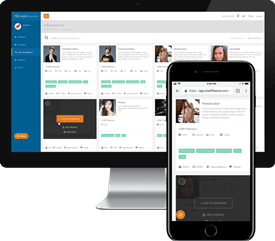Last Updated on December 15, 2020
You can easily get caught up in paid online advertising and try to get the most out of your dollars spent. However, word-of-mouth marketing strategy can turn small amounts of invested time into a major payoff. Explore some excellent strategies to consider when planning your word-of-mouth marketing campaigns.
Target User-Generated Content
User-generated content is effective and usually includes items such as hashtags, contests, and anything else that inspires people to post or submit online content. When people have an interesting reason to share something online, they naturally will. The easiest pieces to share are something they’ve created, such as an opinion blog post, a comment on social media, or a piece of art.
Influencers are one of the easiest sources of user-generated word-of-mouth marketing. Your potential customers will trust influencers if they’re a good fit for your brand. When you give bloggers your product for free so that they can review it, they are making content that tells many other people about what you have to offer. If influencers encourage their audience to also create content and participate in the sharing, you’ll see more impressive boosts to your rankings online.
Think About Gifts and Incentives
One strong method of passively boosting your word-of-mouth campaign is by offering customers some type of reward for participating in the action you want them to take. This outcome is often achieved by offering discounts on future products or billings, small but desirable gifts, and other benefits. These benefits can be offered in exchange for an action such as referring a friend to a business or sharing the results of a quiz on social media.
Consider Reviews and Social Proof
Reviews, testimonials, and comments are the lifeline for word-of-mouth marketing. When people need a car mechanic and search for auto shops in their area, they’ll immediately make a judgment about which business are worth visiting based on their Google star ratings, how many reviews in total make up the ratings, and what different reviews say. This approach is called social proof, and it applies in any situation where someone can process others’ opinions on something.
Besides social proof, asking for customer opinions has another advantage. You’ll have a stronger image about why people like your products or services. This data can provide insights for refining future marketing efforts.
Finally, when you convince people to give feedback, as long as the feedback was positive, they have now invested time into describing you positively. This investment of time can increase their chances of recommending more people and being loyal customers. Many businesses you’ve bought something from probably did a good job, but chances are you more easily remember the good ones that you took the time to review.
Create a Community
Your word-of-mouth marketing strategy can be more easily controlled if your passionate supporters have a place to convene. Your social media pages and websites should be about more than simply selling products. They should be the place to go for people who are part of the community centered on your brand.
Community building takes effort, but it becomes more rewarding over time. If your word-of-mouth marketing efforts lead people to your Facebook page, where they see high engagement posts about items they’d find interesting and worthy of sharing, you’ll gather more fans and followers for bigger innate results on everything you post.
Contrast that strategy with a dead Facebook page. Even a tidal wave of traffic from a passionate influencer is going to be less effective than it could have been.
Approach the Right People
Word-of-mouth marketing and influencer marketing are often treated as the same technique since they both deal with getting more people aware of your brand. Influencer marketing is merely the more direct name. Influencers can help campaigns become viral. However, you should know about three particular types of influencers to consider when determining which ones best fit your campaign goals.
- Aspirational influencers attract an audience of people who want to be more like them. Lifestyle and luxury influencers are good examples, as well as anyone in the self-help or entrepreneur spaces.
- Authoritative influencers are respected for their knowledge or position, such as authors or professors. These influencers can be excellent for brands that sell something to a more skeptical audience.
- Peer influencers have followers who like them. Instead of aspiring to be that person or trusting their intelligence, audience members find the influencers charming and they see them as people who are accessible, such as a friend or online neighbor.
Intellifluence has the organized platform your brand needs to connect and partner with the best influencers for your specific brand and customers, all with far less complexity and time spent compared to directly reaching out to influencers yourself. Take a look at what Intellifluence has to offer. Remember that word-of-mouth marketing has the power to grow your brand’s online visibility at far less expense than through paid advertising.

SallyBot is committed to helping users get the most out of Intellifluence. By helping brands create campaigns, providing unparalleled customer service and offering useful advice, nothing makes SallyBot happier than hearing she is liked… Really, really liked.






